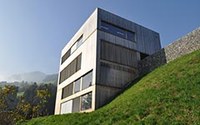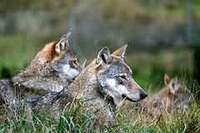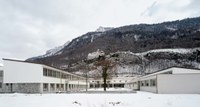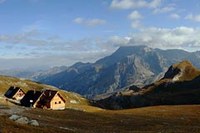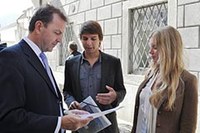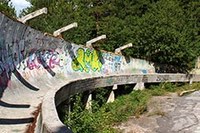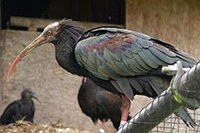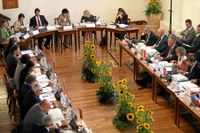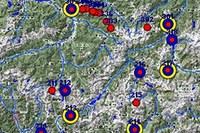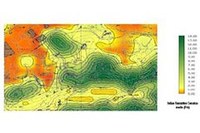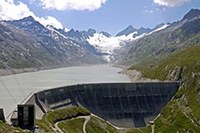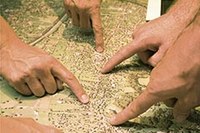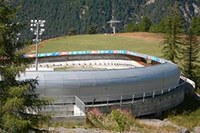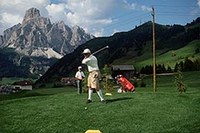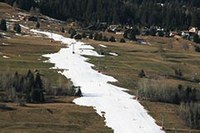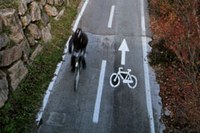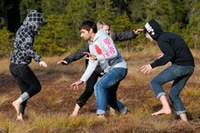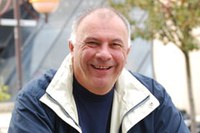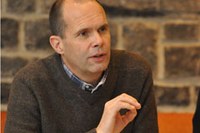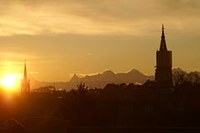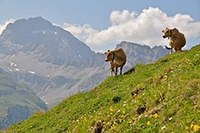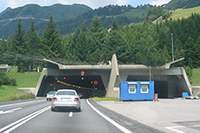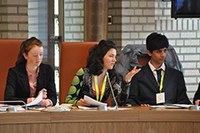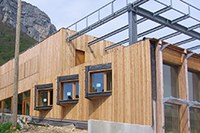Austria
News, publications, press releases, positions... on this page you find current and alpine-relevant information from Austria.
Articles, publications, press releases, CIPRA positions - here you find relevant information on alpine topics from Germany. Please check the other language versions in german, french, italian and slovene for more content.
MountEE Project starts: sustainable public construction in Europe
Municipalities have a duty to act as models, especially as regards construction and renovation work. The MountEE Project makes it possible for municipalities in five European mountain regions to optimise their construction and renovation strategies. Read More…
Wolves: France wants to shoot them while Switzerland celebrates new-borns
In Switzerland they are celebrating the first new generation of wolves. But where should these wolves go? A national park in the south of France has initiated a debate on this topic - with consequences for the Alps. Read More…
Sustainable building in europe’s mountain municipalities
The house of the 21st century is nice and cool in summer, nice and warm in winter, hardly uses energy and – being built of local wood – stimulates the regional economy. The MountEE project explores ways in which municipalities in Europe’s mountain areas can create such a building culture. Seven partners in European mountain areas – among them CIPRA – work together, learn together and jointly improve their strategies and construction methods. Read More…
National park under discussion
The Vanoise National Park in Savoy has a new charter. Representatives from the worlds of politics, economics and civil society have been working on it for over five years. Environmental groups have given it their support, but criticise its limited impact. The municipalities are nevertheless reluctant to sign up to it. Read More…
CIPRA's point of view: Alpine Convention must produce results
The renewal of the Alps needs youth. This was recognised by AlpWeek. The parties to the Alpine Convention are now being challenged to follow up their words with deeds - including as regards the energy question. Read More…
Olympic candidacy - a questionable venture?
Forecasts estimate that the 2022 Winter Olympics in Switzerland will cost 4.5 billion Swiss francs - or, as experience shows, even more. Is it worth it? In March 2013 the citizens of Graubünden will go to the polls to decide. Read More…
The northern bald ibis - welcome back to the wild!
Jazu is back. Last autumn he became the first wild northern bald ibis for 400 years to leave his breeding ground near Burghausen, Bavaria: in summer he found his own way back from Tuscany. Read More…
Using less energy is a genuine energy transition
CIPRA, the International Commission for the Protection of the Alps, is demanding a genuine energy transition: using less energy while maintaining the same quality of life. Sustainable building and energy efficiency are therefore clear priorities. The fragile Alpine arc should in future also remain in a state of equilibrium. CIPRA demands that the environment ministers meeting today in Poschiavo, Switzerland, and the Alpine states should also aim for this genuine energy transition. Read More…
A new solidarity between the Alpine arc and metropolitan areas
Various political actors in and around the Alps are emphasising a macro-regional strategy for the Alps. CIPRA, the International Commission for the Protection of the Alps, is setting out its role prior to the forthcoming Alpine Conference of environment ministers from the Alpine Convention states, due to be held in Poschiavo, Switzerland in September 2012. CIPRA will take an active part in the process and has responded positively to the Alpine macro-region – provided there is a clear framework. Read More…
Connectivity video clip for mayors
Municipalities can collaborate in the improvement of ecological networks in many different ways. Therefore CIPRA wants to convince mayors for this topic with the help of a video clip. Read More…
Connectivity analysis for cross-border areas in the Alps
Which cross-border areas between Alpine countries are most relevant for further connectivity activities? To answer this question the Platform Ecological Network of the Alpine Convention has contracted an analysis. Read More…
Indicators on evaluating the progress of the Alpine ecological network
The establishment of the Alpine Ecological Network is a long process. In order to evaluate the progress, the Platform Ecological Network of the Alpine Convention has developed a set of indicators. Read More…
Econnect's drive living on in recharge.green
Ecological connectivity in the Alps can only be maintained if the production of renewable energy is managed in line with nature protection. Some of the Econnect partners seized the opportunity given by the last call of the Alpine Space Programme to work out a project on this issue. They were successful and "recharge.green" is about to start on 1st October. Read More…
Northeast Asia inspired by the Alpine Ecological Network
In South Korea, China and Japan activities have been started in favour of ecological connectivity. The major protected areas of these countries, the Ministry for environment of South Korea and other key stakeholders have been convinced by the importance of connected habitats thanks to the successful initiatives in the Alps. Read More…
The French ecological network becomes regional
The main aim of the French "Green and Blue Infrastructure" ("Trame Verte et Bleue" - TVB) is to stop biodiversity loss. The ecological network is in addition a powerful tool for spatial planning. The two Alpine regions Rhône-Alpes and Provence-Alpes-Côte-d'Azur have started to set up this new planning tool. Read More…
Financial boost to Bavaria's Ecological Network
2 million Euro will help to further develop the ecological network in Bavaria, "BayernNetzNatur". The environment Ministry gives this additional funding to at least one new nature protection project in each of Bavaria's seven provinces for 2013 and 2014. Read More…
CIPRA's point of view: Torino 2006: a hard lesson - but nothing learned
The Olympic Winter Games 2006 have left a burdensome legacy. The idea is thus to close the loss-making bobsleigh and replace it with an indoor ski slope. Is Turin simply throwing good money after bad? Read More…
Bavaria: Alpine Convention makes court appearance
The constitutional court of Bavaria has received a complaint against the classification of land for development demanding, for the first time, compliance with the Alpine Convention. The court ruling could significantly change how the Alps are protected in Bavaria. Read More…
Winter tourism: lateral thinking in Savoy
The skiing area of Biot/F sees ever less snow, and the resort is deep in debt. The local mayor now wants to get rid of the lifts and develop other forms of tourism. A visionary decision in the western Alps. Read More…
Joint action on climate change
The forests of the Alps will only be able to cope with climate change if the findings from all the various specialist fields are pooled together. And that requires new forms of co-operation and communication. Read More…
Knowing how to shape the climate
Climate protection is possible. It's just that lots of people don't know how to go about it. CIPRA is demonstrating how we can protect the climate and save money at the same time. The whole idea is being trialled in two pilot regions in the Alps Read More…
Young, climate-conscious, and thirsting for action
Young people from five Alpine nations campaigned as part of the My Clime-mate Project to make the Alps a carbon-neutral region. At the end of October they took stock - and forged new plans. Read More…
"We'll keep at it."
Virtually everyone was there. Idrija's festival hall was packed to the rafters, and the youth symphony orchestra summoned specially for the occasion was in full flow. There was plenty of drama, and the TV people were there, too. A murmur went through the 1,000-strong audience as they got to their feet and began clapping. Then a large burly man in a dark suit walked onto to the stage. Deep creases bracketed his laughing mouth like waterfalls, stretching up to his white temples. Bojan Sever, the major of the small Slovenian town in the alpine foothills, held aloft the certificate confirming their status as Alpine Town of the Year 2011. Cameras flashed and the applause redoubled. That was just over a year ago. Read More…
"CIPRA is a both a mainstay and a cornerstone"
Chris Walzer, lead partner of Econnect, on ecological networking, psychological barriers and a continuous landscape. Read More…
Alpine regions demand joint strategy
The Conference of the Alpine Regions has decided on an initiative paper for the development of a macro-regional strategy for the Alpine arc. It declares that the need is for greater innovation and economic strength within an intact environment, as well as more co-operation and the bundling of development funds. There is just one thing that is not mentioned: the Alpine Convention. Read More…
Fewer Alpine pastures
It is not the number of Alms (mountain pastures) that is in decline: rather it is the area of pastureland being worked, according to the preliminary results of the work on the "Alm Atlas". Read More…
New vehicle tunnels for goods traffic: a dead end
Traffic chaos in the Alps: this summer the most important transit axes are being closed to rail traffic. Haulage associations are thus again demanding new road tunnels. But the Alpine regions have decided that the solution to the traffic problem lies elsewhere. Read More…
Alp Week: a place for youth
Politics, science, NGOs. All the usual suspects are there at the 2012 AlpWeek in Poschiavo. This time, however, there is a special place for young people. Here is an overview of the programme. Read More…
The future of farming in the mountains
The European Union is negotiating the Common Agricultural Policy (CAP). If the "Alliance for Agriculture and Nature Protection in the Alpine Regions" has its way, farming in the mountains will be given particular consideration. The alliance has now submitted its catalogue of demands. Read More…
In summer cool, in winter warm
The European Union Directive on the energy performance of buildings takes effect from July. Low-energy buildings will be mandatory as from 2021. The community centre of Saint-Jean-d'Arvey already meets these criteria. The building, made of regional wood, will open at the end of June - a first. Read More…
